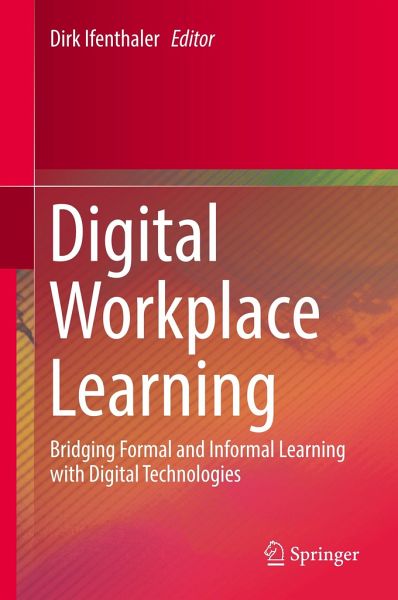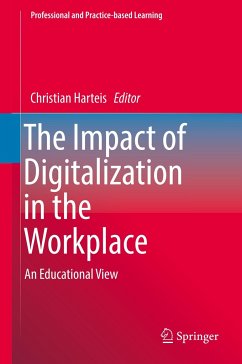
Digital Workplace Learning
Bridging Formal and Informal Learning with Digital Technologies
Herausgegeben: Ifenthaler, Dirk

PAYBACK Punkte
46 °P sammeln!
This book aims to provide insight into how digital technologies may bridge and enhance formal and informal workplace learning. It features four major themes:1. Current research exploring the theoretical underpinnings of digital workplace learning.2. Insights into available digital technologies as well as organizational requirements for technology-enhanced learning in the workplace.3. Issues and challenges for designing and implementing digital workplace learning as well as strategies for assessments of learning in the workplace.4. Case studies, empirical research findings, and innovative examp...
This book aims to provide insight into how digital technologies may bridge and enhance formal and informal workplace learning. It features four major themes:
1. Current research exploring the theoretical underpinnings of digital workplace learning.
2. Insights into available digital technologies as well as organizational requirements for technology-enhanced learning in the workplace.
3. Issues and challenges for designing and implementing digital workplace learning as well as strategies for assessments of learning in the workplace.
4. Case studies, empirical research findings, and innovative examples from organizations which successfully adopted digital workplace learning.
1. Current research exploring the theoretical underpinnings of digital workplace learning.
2. Insights into available digital technologies as well as organizational requirements for technology-enhanced learning in the workplace.
3. Issues and challenges for designing and implementing digital workplace learning as well as strategies for assessments of learning in the workplace.
4. Case studies, empirical research findings, and innovative examples from organizations which successfully adopted digital workplace learning.














